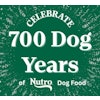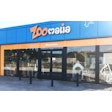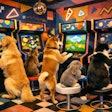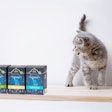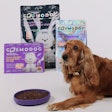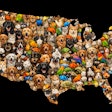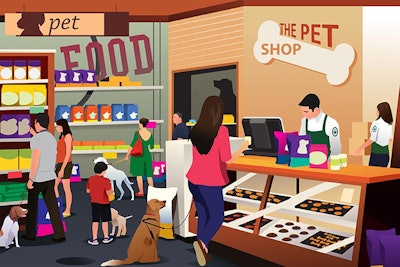
Pet retailers have been under pressure for some time now, mainly due to the rapid and continuing growth of pet food sales via e-commerce, but also from the rise of “mass premium” pet food brands that have combined the features and claims of natural and premium products with a price point that works in grocery stores and other mass retailers. This has led, at least in the US, to the growth rate of mass market pet food sales outstripping growth in pet specialty in 2017, according to Euromonitor.
But there is a bright spot for brick and mortar pet retailers: pet food brands focusing on small, independent pet shops — what GfK refers to as the neighborhood pet, or NHP, channel, which doesn’t include pet superstores — have seen sales growth of 75 percent over the past five years, compared to a 1.7 percent decline for other brands not focused on that channel. And of course, that means steady sales of those products for the independent pet shops stocking them on their shelves.
Premium, natural, grain free: path to next sweet spot for pet foods
Sean Simpson, client service manager for GfK’s POS (point of service) Pet Tracking team, provided this data in a recent article on PetBusiness.com. And no surprise, he pointed out that pet food brands focused on the NHP channel are mainly premium ones. “For example, almost 100 percent of all dollar sales for NHP SKUs during 2017 were in the natural category, compared to just 65 percent for those that sell to a broader set of stores,” Simpson wrote. “Similarly, 71 percent of sales for NHP-exclusive brands were for products labeled grain-free — double the proportion for SKUs that are not NHP exclusive.”
In the same vein, pet owners who shop in neighborhood pet shops tend to better tolerate premium prices, Simpson said. “GfK’s POS data show that NHP-exclusive, full-meal SKUs average US$2.43 per pound, compared to US$2.15 for brands that do not focus on NHP. For treats, the contrast is US$13.87 in NHP versus US$10.65 in other brands.”
This data doesn’t just confirm where the sweet spot is for pet food; it also can help illuminate a path forward for manufacturers looking for the “next big thing” in pet food. “Tapping into emerging premium trends is key,” Simpson wrote. “Maybe the NHP success stories of tomorrow will revolve around air-dried or slow-baked brands; manufacturers need to watch the data closely and pounce.” Or perhaps they’re in the small but quickly growing freeze-dried and raw categories.
Neighborhood pet shops’ impact on pet food market
The NHP channel may be just one slice of the overall US pet food market, but it is growing in significance, according to data presented at Petfood Forum 2017 by Maria Lange, business group director for GfK’s POS Pet Tracking. In 2016, NHP-exclusive brands accounted for 17.8 percent of pet specialty’s US$8 billion in pet food sales. That was dwarfed by the 60.9 percent share for brands exclusive to pet specialty in general (including pet superstores) — but since 2011, the overall pet specialty brands declined by 1.8 points while the NHP-exclusive brands increased 6.1 points.
For further comparison, broadly distributed pet food brands, meaning those available in other channels in addition to pet specialty, accounted for 17.5 percent of sales in the pet specialty channel, representing a 6.4 point decrease since 2011. The only other growth from 2011 to 2016 was in private label brands, but they account for just 3.8 percent of pet specialty sales.
(Note that Simpson’s and Lange’s colleague, Natasha Davis, also a client service manager for GfK, will be sharing this type of data and trends during a session at Petfood Forum 2018.)
Bringing small pet food brands to the dance
Focused, smaller premium and natural pet food brands have always enjoyed a symbiotic relationship with NHP stores. One recent sign of this relationship occurred last year when family-owned companies like Tuffy’s Pet Foods, Champion Petfoods and Fromm Family Foods pulled their products from Chewy.com after its acquisition by PetSmart.
Independent pet retailers have noticed, and even expect, such moves. “Companies like Champion and Fromm who have pledged their support to the independent stores and pulled from big online giants have taken a bold step — and they should,” said Pattie Boden, owner of a store called Animal Connection in Charlottesville, Virginia, USA, and recently quoted in Pet Product News magazine. “The small stores took a chance on them when they were building their brand. They owe it to us to be loyal to the people who brought them to the dance in the first place.”
With the type of sales growth such brands are enjoying, this area seems ripe for further pet food development and expansion.


